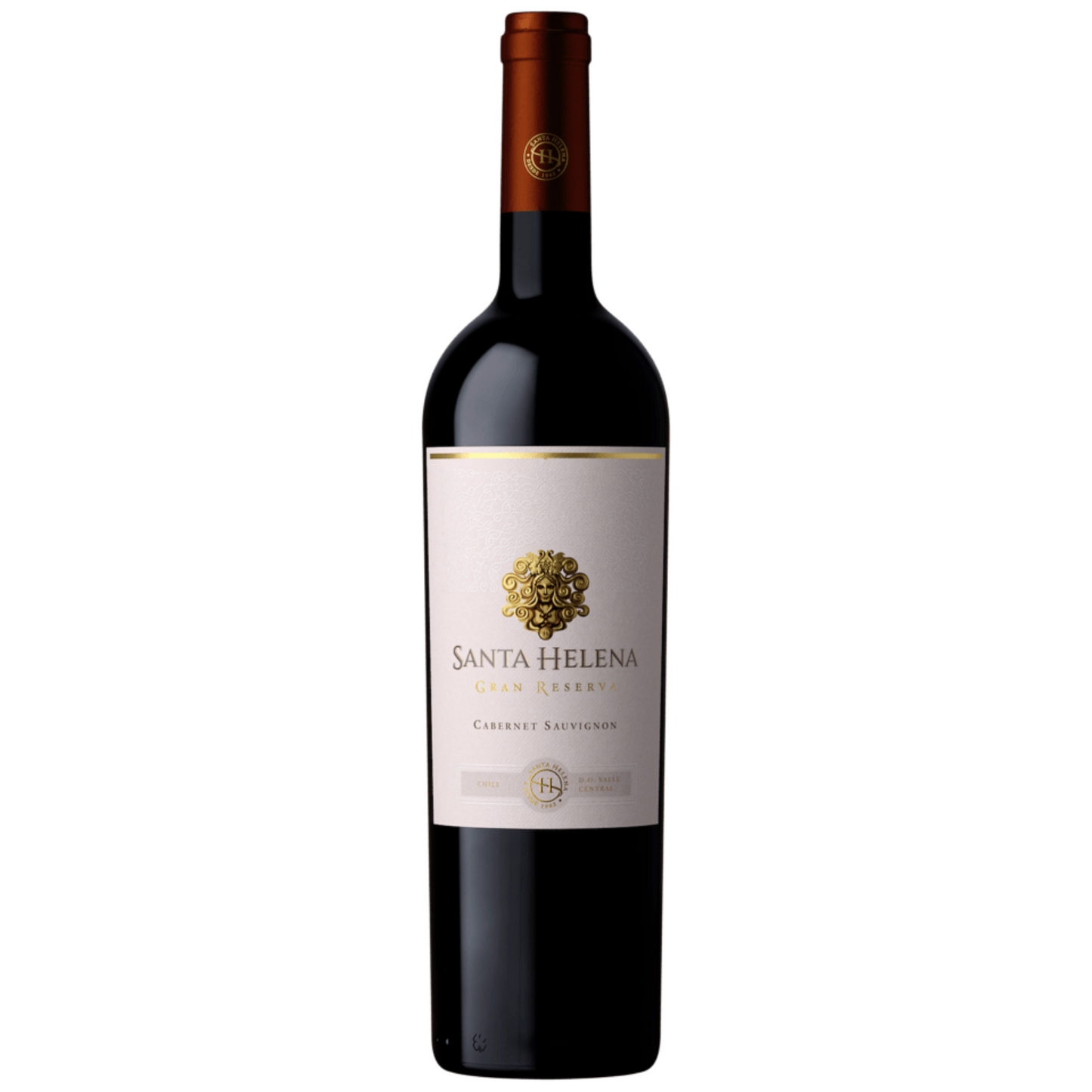Santa Helena Gran Reserva Cabernet Sauvignon 2023
Santa Helena Gran Reserva Cabernet Sauvignon 2023
Country: Chile
Region: Aconcagua
Volume: 750ml
Winery Background and History
Viña Santa Helena was founded in 1942 in Chile and gradually expanded its reputation through consistent quality and regional sourcing. Over the decades it became part of the VSPT Wine Group, enabling investments in modern facilities and vineyard management. The “Gran Reserva” tier represents one of its premium lines, focusing on select parcels and enhanced cellar techniques to elevate structure, depth, and longevity beyond its standard ranges. The winery balances commercial reach with aspiration toward wines that reflect Chile’s terroirs with personality.
Producer and Wine Maker
This Cabernet Sauvignon is produced by the Santa Helena winemaking team under the umbrella of VSPT Group. While there’s no widely published name of a singular “star” winemaker for each vintage, the producer applies a collaborative enology team approach: selecting vineyard lots, deciding on harvest timing, managing fermentation protocols, and crafting oak programs. Their objective with the Gran Reserva label is to deliver higher concentration and refinement in mouthfeel and aromatic complexity, while preserving varietal clarity and regional character.
Vineyards and Micro Climate
Grapes for this wine are sourced from vineyards located in the Colchagua and Rapel sectors within Chile’s Central Valley appellation. These zones enjoy a Mediterranean climate, with warm, dry summers and cooling influences from the Pacific, which moderate ripening and help retain acidity. Soils are varied — alluvial gravels, clay, loam — supporting Cabernet with good drainage. Diurnal temperature shifts (warm days, cooler nights) enhance aromatic retention and structural balance. This climate-soil interplay helps produce wines with ripe fruit yet freshness and backbone.
Vinification & Aging Methods
After hand or selective harvesting, the Cabernet Sauvignon grapes are destemmed and gently crushed, then fermented in temperature-controlled stainless steel tanks to optimize color, tannin extraction, and aromatic preservation. Post-fermentation, the wine is racked to French oak barrels for maturation. The oak aging period is calibrated (often 8–12 months, depending on parcelle) to integrate toast, spice, and tertiary complexity without overpowering. Lees stirring or contact might be used to smooth texture, and strict monitoring ensures stability, clarification, and final blending before bottling.
Tasting Notes
Deep ruby with purple hues. On the nose, expressive aromas of black cherry, cassis, red plum, cedar, dark chocolate, and subtle peppery spice, with touches of tobacco and vanilla. The palate is full-bodied with plush red and black fruit layers, supple but firm tannins, good structure, and a fine acid backbone. Mid palate shows hints of clove, graphite, and a lingering finish with cocoa and earth tones. The wine displays balance between fruit richness and structural discipline.
Food & Wine Pairing
Pairs exceptionally with grilled or roasted red meats (ribeye, sirloin), lamb chops with herbs, beef stews, and game meats like venison. Also complements dishes with umami undertones: beef bourguignon, mushroom ragout, aged hard cheeses (like Manchego, aged Cheddar), or charcuterie. Hearty stews with root vegetables, peppercorn sauce, or reduction jus also work well.
Service Methods and Temperatures
Serve between 16-18 °C in a large Bordeaux-style red wine glass to allow full aromatic and textural expression. A mid-size decant (30 minutes to 1 hour) can help soften tannins and open secondary aromas, especially for younger bottles. Use gentle pouring to avoid excessive agitation. For by-the-glass settings, preserve with inert gas or tight closures to retain freshness.
Storage and Aging Potential
Store in a cool, stable environment (12-15 °C with 60–70% humidity), away from light and vibration. Under ideal conditions, the 2023 vintage has potential for 7–10 years of aging, possibly more depending on barrel integration and bottle condition. Through aging, tertiary notes like leather, tobacco, dried fruit, and forest floor may emerge, and structural elements will soften and harmonize.
Grape Varietals & percentage used
100% Cabernet Sauvignon
ABV (Alcohol by Volume)
14.4%
Couldn't load pickup availability
238 in stock
View full details

